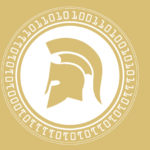Trojans - what they are, how they act and how to keep them out of your computer
Have you heard of Trojans? You certainly must know the story of the Trojan horse. Just like the mythical horse that the Greeks used to enter the city of Troy without being noticed, these programs try to make their way into your computer without raising suspicions, opening a back door for a remote attacker to also enter.

The unique aspect of this malware is that it presents itself to the user as an apparently legitimate or inoffensive program. But once executed, it offers the attacker a remote access to the infected computer.
What is the mission of a Trojan?
The mission of a Trojan is to create a back door that that allows an unauthorized attacker to enter your computer. Its goal is no different than that of other types of malware: to steal confidential and personal information.
The most valuable information is, without a doubt, financial information. For that reason, banks are especially concerned about Trojans that enter computers through emails with attachments. If these files are opened, the malicious code enters the computer and moves around freely, until it finds the passwords to online banking that are stored in the computer.
You may ask how it´s possible that a Trojan can obtain the passwords to your accounts. This happens because Trojans are designed so that an attacker can access a system remotely and perform certain actions without asking permission. To make things more complicated, a Trojan can be executed in a computer for months without the user noticing anything. However, if you follow our recommendations, you’ll be able to keep a Trojan from taking your computer hostage.
How a Trojan knocks on your door
A Trojan can knock on your door:
- Through an image or a link to an infected website.
- By means of an attachment or a link included in an email. These Trojans enter our computer and wait silently until we connect to our online bank.
Other means of entry are:
- Infected devices (mobile phones, USB stocks, DVDs)
- Fraudulent websites (that supplant those of stores or banks) or legitimate but infected websites.
- File-sharing programs (P2P)
- Free software.
How to know if a Trojan is camping out in your computer
Although they try to pass unnoticed, Trojans leave a number of signs of their stay in your computer. If your computer shows any of the following symptoms, you could be dealing with a Trojan:
- Emerging screens or windows with unusual messages. There´s no doubt: either spyware has been installed in the PC or a false antivirus program has infected it.
- Unusual behavior by the search engine: The Internet search engine goes by itself to certain sites that we have not requested; windows open and close by themselves. This is an unequivocal sign of an infection. Many of the threats are designed to redirect traffic to specific sites that the user has not requested
- Problems with connections. You can’t connect to the Internet or the connection is much slower than usual. The malware could be establishing different connection sessions, which undoubtedly will rob bandwidth and will cause you to browse or even make it impossible.
- A slow Operating System. Continuous blockages, a system that restarts for unknown reasons, or programs that unexpectedly begin to execute or close down.
- The antivirus program disappears. Another characteristic of many computer threats is the disabling of the security system that has been installed.
How to make life difficult for a Trojan
To make things much more difficult for a Trojan, follow these recommendations:
- Install an original antivirus program (it could be a free one) and always keep it updated.
- Update the applications and the operating system.
- Don´t trust email messages with unknown senders.
- Don´t click on links or open attachments unless you´re 100% sure of their origin.
- BBVA also recommends that you "always download applications from the official markets, not just the mobile banking ones.” In threats of this kind, the Trojan may hide, not only in an application that pretends to be a bank, but also in a generic software utility - for example, those that pretend to allow videos to be seen in “Flash” format.